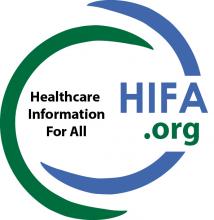4 April, 2018

Note: This blog includes personal views of the HIFA moderator, Neil Pakenham-Walsh, and is intended to provoke further exploration of the subject. Join HIFA to engage in the discussion.
What do we mean by evidence-informed humanitarian action (preparedness and response)? What kind of evidence do humanitarians need, and why? How can humanitarians access and use evidence more effectively?
Public Health England supported a thematic discussion on the HIFA forum in October and November 2017. There were 104 messages from 22 contributors in 11 countries (Bangladesh, Iceland, India, Nepal, Nigeria, Sudan, Switzerland, Uganda, UK, USA, Zimbabwe). The discussion was held as a contribution to Humanitarian Evidence Week, an initiative led by Evidence Aid and the Centre for Evidence-Based Medicine.
Background here:
What do we mean by evidence-informed humanitarian action?
We were surprised to learn that there is no agreed definition. As HIFA moderator, I suggested one: 'Humanitarian action that is informed by appropriate interpretation of the totality of all available, relevant evidence (analogous to evidence-informed policy and practice)'.
What kind of evidence do humanitarians need, and why?
The resulting discussion suggested that evidence-informed action, as defined above, is rare in the humanitarian community. Humanitarian action is largely informed by lessons learned and personal experience/expertise. The classic reference is The Sphere Handbook, but Evidence Aid has noted that this guide is less evidence-informed than it might be.
Indeed, my impression from the discussion is that evidence-informed humanitarian action is lagging behind evidence-informed health policy and clinical practice. This could be for many reasons: there is a limited evidence base (rigorous research in humanitarian action is difficult); systematic review of available evidence has limited relevance and applicability to the messy contexts of humanitarian action; and, perhaps, there is limited recognition from humanitarians about the need for a more evidence-informed approach.
Systematic reviews are the basis of evidence-informed policy and practice. "But the problem, quite frankly, is that most systematic reviews of evidence are not relevant to answering questions in-context about programming design and intervention efficacy", said Alice Obrecht of ALNAP.
ALNAP is one of the leading global organisations for information in humanitarian action, and its Lessons Papers are especially popular. ALNAP Is developing a new methodology to improve the reliability and relevance of future Lessons Papers.
Despite much publicity, we were unable to persuade humanitarians themselves to join HIFA to discuss this question.
Recommended organisations/resources
• ALNAP
• HC3
• WHO Guideline on Effective Community Engagement for Emergency and Outbreak Preparedness and Response
HIFA members noted there are seven 'Disaster' journals indexed in PubMed, but only two of these (Emerging Infectious Diseases and PLOS Currents) are open access.
Join HIFA to continue the discussion!

